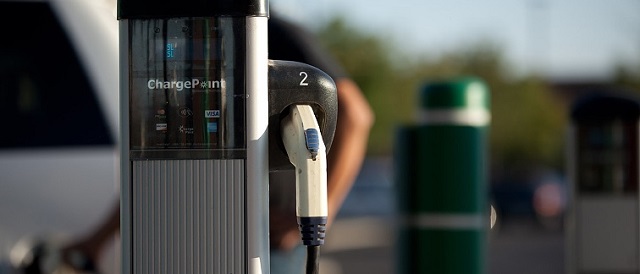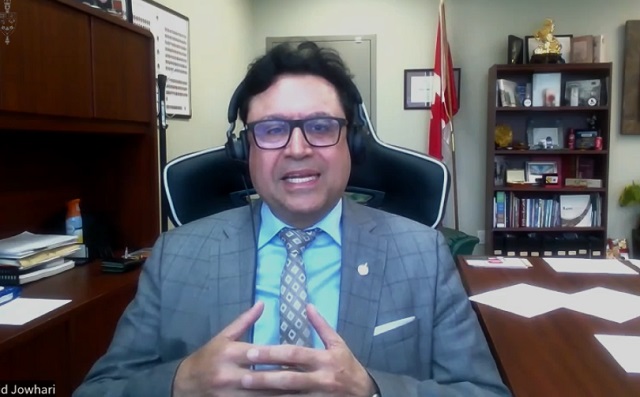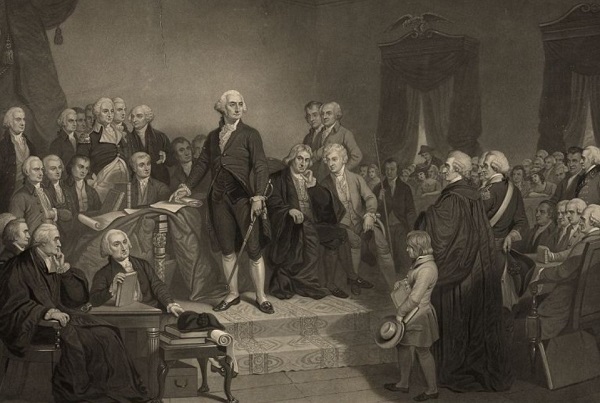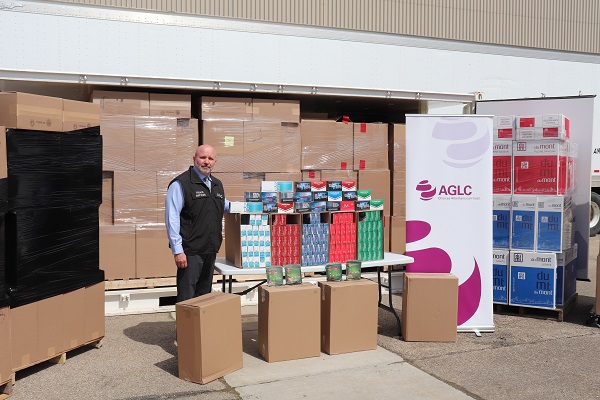Uncategorized
Jeff Sessions pushed out after a year of attacks from Trump

WASHINGTON — Attorney General Jeff Sessions was pushed out Wednesday after enduring more than a year of blistering and personal attacks from President Donald Trump, who inserted in his place a Republican Party loyalist with authority to oversee the remainder of the special counsel’s Russia investigation.
The move has potentially ominous implications for special counsel Robert Mueller’s probe, given that the new acting attorney general, Matthew Whitaker, until now Sessions’ chief of staff, has questioned the inquiry’s scope and spoke publicly before joining the Justice Department about ways an attorney general could theoretically stymie the probe.
Congressional Democrats, concerned about protecting Mueller, called on Whitaker to recuse himself from overseeing the investigation in its final but potentially explosive stages.
That duty has belonged to Deputy Attorney General Rod Rosenstein, who appointed Mueller. Rep. Jerry Nadler, the top Democrat on the House Judiciary Committee, said he wants “answers immediately” and “we will hold people accountable.”
The resignation, in a one-page letter to Trump, came one day after Republicans lost control of the House of Representatives and was the first of several expected post-midterms Cabinet and White House departures. Though Sessions was an early and prominent campaign backer of Trump, his departure letter lacked effusive praise for the president and made clear the resignation came “at your request.”
“Since the day I was
The resignation was the culmination of a toxic relationship that frayed just weeks into Sessions’ tenure, when he stepped aside from the Russia investigation because of his campaign work and following the revelation that he had met twice in 2016 with the Russian ambassador to the U.S.
Trump blamed the recusal for the appointment of Mueller, who took over the Russia investigation and began examining whether Trump’s hectoring of Sessions was part of a broader effort to obstruct the probe.
The investigation has so far produced 32 criminal charges and guilty pleas from four former Trump aides. But the work is not done and critical decisions await that could shape the remainder of Trump’s presidency.
Mueller’s grand jury, for instance, has heard testimony for months about Trump confidant Roger Stone and what advance knowledge he may have had about Russian hacking of Democratic emails. Mueller’s team has also been pressing for an interview with Trump. And the department is expected at some point to receive a confidential report of Mueller’s findings, though it’s unclear how much will be public.
Trump had repeatedly been talked out of firing Sessions until after the midterms, but he told confidants in recent weeks that he wanted Sessions out as soon as possible after the elections, according to a Republican close to the White House who was not authorized to publicly discuss private conversations.
The president deflected questions about Sessions’ expected departure at a White House news conference Wednesday. He did not mention that White House chief of staff John Kelly had called Sessions beforehand to ask for his resignation. The undated letter was then sent to the White House.
The Justice Department did not directly answer whether Whitaker would assume control of Mueller’s investigation, with spokeswoman Sarah Isgur Flores saying he would be “in charge of all matters under the purview of the Department of Justice.”
Rosenstein remains at the department and could still be involved in oversight.
Without Sessions’ campaign or Russia entanglements, there’s no legal reason Whitaker couldn’t immediately oversee the probe. And since Sessions technically resigned instead of forcing the White House to fire him, he opened the door under federal law to allowing the president to choose his successor instead of simply elevating Rosenstein, said University of Texas law professor Stephen Vladeck.
“Sessions did not do the thing he could have done to better protect Rosenstein, and through Rosenstein, the Mueller investigation,” Vladeck said.
That left Whitaker in charge, at least for now, though Democrats, including Rep. Nancy Pelosi and Sen. Chuck Schumer, said he should recuse himself because of his comments on the probe.
Whitaker, a former U.S. attorney from Iowa who twice ran unsuccessfully for statewide office and founded a law firm with other Republican Party activists, once opined about a scenario in which Trump could fire Sessions and then appoint an acting attorney general who could stifle the funding of Mueller’s probe.
In that scenario, Mueller’s budget could be reduced “so low that his investigation grinds to almost a halt,” Whitaker said during an interview with CNN in July 2017 before he joined the Justice Department.
In a 2017 CNN op-ed, Whitaker wrote, “Mueller has come up to a red line in the Russia 2016 election-meddling investigation that he is dangerously close to crossing.”
Trump’s relentless attacks on Sessions came even though the Alabama Republican was the first U.S. senator to endorse Trump and despite the fact his crime-fighting agenda and priorities, particularly his hawkish immigration enforcement policies, largely mirrored the president’s.
He found satisfaction in being able to reverse Obama-era policies that conservatives say flouted the will of Congress, encouraging prosecutors to pursue the most serious charges they could and promoting more aggressive enforcement of federal marijuana law.
He also announced media leak crackdowns and tougher policies against opioids, and his Justice Department defended a since-abandoned administration policy that resulted in migrant parents being separated from their children at the border.
But the relationship was irreparably damaged in March 2017 when Sessions, acknowledging previously undisclosed meetings with the Russian ambassador and citing his work as a campaign aide, recused himself from the Russia investigation.
Trump repeatedly lamented that he would have never selected Sessions if he had known the attorney general would recuse himself. The recusal left the investigation in the hands of Rosenstein, who appointed Mueller two months later after Trump fired then-FBI Director James Comey.
In piercing attacks, Trump called Sessions weak and beleaguered, complained that he wasn’t more aggressively pursuing allegations of corruption against Democratic rival Hillary Clinton and called it “disgraceful” that Sessions wasn’t more serious in scrutinizing the origins of the Russia investigation for possible law enforcement bias — even though the attorney general did ask the Justice Department’s inspector general to examine those claims.
The broadsides escalated in recent months, with Trump telling an interviewer that Sessions “never had control” of the Justice Department.
Sessions endured most of the name-calling in silence, though he did issue two public statements defending the department, including one in which he said he would serve “with integrity and
Sessions, who likely suspected his ouster was imminent, was spotted by reporters giving some of his grandchildren a tour of the White House over the weekend. He did not respond when asked why he was there.
___
Associated Press writers Jonathan Lemire and Mary Clare Jalonick in Washington and Ryan Foley in Iowa City, Iowa, contributed to this report.
Eric Tucker And Michael Balsamo, The Associated Press
Uncategorized
RCMP recruitment failure has Alberta advocacy group calling for Provincial Police Service

News release from Free Alberta Strategy (A Strong And Sovereign Alberta Within Canada)
“Make no mistake, we are paying for these services that we aren’t receiving. Alberta’s taxpayers are paying tens of millions of dollars for nearly 400 vacant RCMP officer positions – for boots that are not on the ground.”
A recent report from the Royal Canadian Mounted Police (RCMP)’s independent Management Advisory Board had findings that are nothing short of alarming:
“Federal policing has now arrived at a critical juncture of its sustainability, which present risks for the national security and safety of Canada, its people, and its interests,” says the report.
After over a year of diligent study, the Board has been tirelessly firing off flares, signalling to all who will listen: the very foundation of our national public safety apparatus may be at risk of faltering.
This is doubly problematic because, as you well know, the RCMP is also responsible for boots-on-the-ground policing in large parts of the country, including many rural and remote areas – including in Alberta.
Rural crime has been a longstanding issue in Alberta, and social disorder continues to make headlines nightly.
Alberta Minister of Public Safety, Mike Ellis, took to social media platform X (formerly known as Twitter) to express his opinion:
“The independent report finds the RCMP has struggled in recent years to recruit and retain regular members, a problem that’s particularly acute in federal policing. This is not about the hard-working men and women on the frontline: they are doing everything they can. The reality is the RCMP do not have enough officers to police communities in Canada effectively.”
Ellis has been ahead of this story for months now.
In March, Ellis stated that:
“… on average, Alberta has an RCMP officer vacancy rate of 20 per cent. This means that Alberta is only being served by 1,522 of the 1,911 RCMP officers that the federal government has authorized for Alberta.”
“Make no mistake, we are paying for these services that we aren’t receiving. Alberta’s taxpayers are paying tens of millions of dollars for nearly 400 vacant RCMP officer positions – for boots that are not on the ground.”
The consequences of this capacity crisis are far-reaching.
Not only does it jeopardize the safety of Albertans, but it also undermines the credibility of Canada’s federal police force on the international stage.
With limited resources and personnel, the RCMP’s ability to address pressing national and global security concerns is severely compromised.
The Management Advisory Board, created in 2019 by the federal government to provide external advice to the RCMP commissioner, set up a task force in the fall of 2022 to study the federal policing program.
Overall, the report says budget and personnel shortfalls have left the RCMP “operationally limited,” restricting the number of cases it can take on annually.
Here are some more highlights from the report:
“Canada and its people have already begun to see the repercussions of the federal policing program being stretched thin.”
“Federal policing’s overall eroding capacity may have implications for the credibility of Canada’s federal police force and its investigations on the international stage.”
“Ultimately, this may influence Canada’s overall approach and standing in international politics, including its ability to advance global priorities.”
Clearly, we cannot afford to wait any longer.
Municipalities can ease the burden on our national security services by establishing municipal policing.
Several cities in Alberta already have their own police authorities, and the provincial government is providing funding for others interested in exploring this option.
Grande Prairie is already in the process of establishing their own municipal police service.
No word on how many other municipalities have taken the government up on their offer.
Unfortunately, President of Alberta Municipalities Tyler Gandam (also Mayor of Wetaskiwin) is featured prominently on the National Police Federation’s “Keep Alberta RCMP” website.
Interestingly, the Keep Alberta RCMP website doesn’t mention the fact that the advisory board even exists.
It doesn’t mention the report.
The notion that our federal policing infrastructure teeters on the brink of instability while Gandam appears to be asleep at the wheel, is deeply disconcerting.
The safety and security of Albertans must remain our top priority.
We cannot afford to wait any longer.
The time has come for the province to take swift and decisive measures to bolster policing capabilities in Alberta.
It’s time for Alberta to seriously consider the establishment of an Alberta Provincial Police Service.
It has been one of the core tenets of the Free Alberta Strategy.
If you agree, please reach out to your municipality and ask them to take steps to protect your community.
Together, we can keep Alberta safe.
Regards,
The Free Alberta Strategy Team
P.S. We’re hoping you’ll consider contributing to our cause. Your generous donation helps us make a positive impact in our community. No need to worry about any hold-ups or threats here. We’re just passionate about making a difference, and your support goes a long way in helping us achieve our goals.
Uncategorized
Making Alberta a geothermal energy leader

Eavor announces it’s the #1 geothermal energy startup company in the world – January 2024
Alberta is creating Canada’s first geothermal test site to advance drilling innovation, reduce emissions and create jobs.
Geothermal energy uses naturally occurring heat within the earth to heat water and buildings and generate power, with few emissions or environmental impacts. Alberta has vast pockets of heat below ground, making the province Canada’s geothermal leader, but testing and developing new technologies can be a barrier for many companies. Unlike the United States, Japan and other countries, Canada does not currently have an open-access test site to help spur innovation.
Alberta is taking the first steps to create a new Alberta Drilling Accelerator. This groundbreaking facility would be the first of its kind in Canada, establishing Alberta as a global hub for geothermal technology. This will drive new innovations in geothermal and other clean energy projects that can reduce emissions and power communities around the world.
To kick-start the project, the Alberta government is investing $750,000 to conduct a feasibility study led by Calgary-based Eavor Technologies and other stakeholders. The study is the first step in assessing the proposed facility. It will include identifying a site, business planning, research on the governance model, an economic impact analysis and stakeholder engagement that will lay the groundwork for the initial planning stages of the project.
“Alberta has been a global energy leader for more than a century, renowned for our skilled workforce, innovation and one of the largest oil and gas reserves on the planet. The proposed Alberta Drilling Accelerator presents enormous potential to help our province lead the next wave of energy projects here at home and around the world that reduce emissions, create jobs and enhance energy security.”
The Alberta Drilling Accelerator would help companies test out and develop new geothermal drilling techniques or technologies to reduce emissions and drive growth across the clean energy sector. It would be an open-access, technology-agnostic drilling test facility capable of drilling in challenging environments, including deep depths, high temperatures and different rock types.
The accelerator also would help speed up the development of carbon capture, utilization and storage; helium; critical minerals; and other clean technologies and commodities that rely on Alberta’s drilling sector. All of this helps attract investment and bring new technologies to scale in Canada.
“With cumulative geothermal investment poised to reach $1 trillion by 2050, a geothermal arms race is very much underway to commercialize novel drilling techniques that accelerate geothermal development – exhibited by testing facilities in the United States, China and Iceland. As Canada’s first geothermal test bed, the Alberta Drilling Accelerator will help bring geothermal technologies to scale, supporting companies like Eavor. We commend the Government of Alberta for this bold initiative.”
“We are proud to witness Eavor, a CDL-Rockies alumni company, create new opportunities for innovators like themselves to advance the adoption of energy transition technologies like geothermal. The Alberta Drilling Accelerator will further solidify Alberta’s position as a leader in the global sustainable energy landscape.”
If the feasibility study shows the facility is economically and environmentally viable, and if the project is approved by the Alberta government, the facility will start taking shape at the selected site and drilling could start as early as 2025.
“Canada is home to the most advanced drilling technology in the world. Not only do our members support the responsible development of oil and gas, but we are integral in the extraction of new energy resources like geothermal and critical minerals. Our workers are at the epicentre of Canada’s energy transformation. Our people, technology and processes are leading the way towards a more diverse energy future. The Alberta Drilling Accelerator is a government-enabled policy approach to expand Alberta’s drilling capacity and reach its full potential as the world’s most diverse and technologically advanced producer and exporter of sustainable energy and critical minerals.”
“The Alberta Drilling Accelerator is a testament to Alberta’s innovative and entrepreneurial spirit. Leveraging our oil and gas sector expertise, Alberta is poised to become the global leader in developing new geothermal technologies that will play an integral role in reducing emissions while supporting job creation.”
Quick facts
- The Canadian Association of Energy Contractors estimates that one active drilling rig, whether drilling for natural gas or geothermal, creates approximately 220 direct and indirect jobs and
$1 million in tax revenue. - In 2019, Eavor received $2 million in provincial funding through Emissions Reduction Alberta and Alberta Innovates for the world’s first closed-loop geothermal system.
Related information
-

 Energy18 hours ago
Energy18 hours agoTech giants’ self-made AI energy crisis
-

 Energy2 days ago
Energy2 days agoNew Report Reveals Just How Energy Rich America Really Is
-

 Automotive2 days ago
Automotive2 days agoBiden’s Climate Agenda Is Running Headfirst Into A Wall Of His Own Making
-

 Economy2 days ago
Economy2 days agoFeds spend $3 million to fly 182 politicians and bureaucrats to climate conference
-

 Addictions1 day ago
Addictions1 day agoLiberals shut down motion to disclose pharma payments for Trudeau’s ‘safe supply’ drug program
-

 espionage21 hours ago
espionage21 hours agoThe Scientists Who Came in From the Cold: Canada’s National Microbiology Laboratory Scandal, Part I
-

 Frontier Centre for Public Policy15 hours ago
Frontier Centre for Public Policy15 hours agoThe PM as Leaf’s coach
-

 Opinion2 days ago
Opinion2 days agoOrdinary working Canadians are not buying into transgender identity politics








